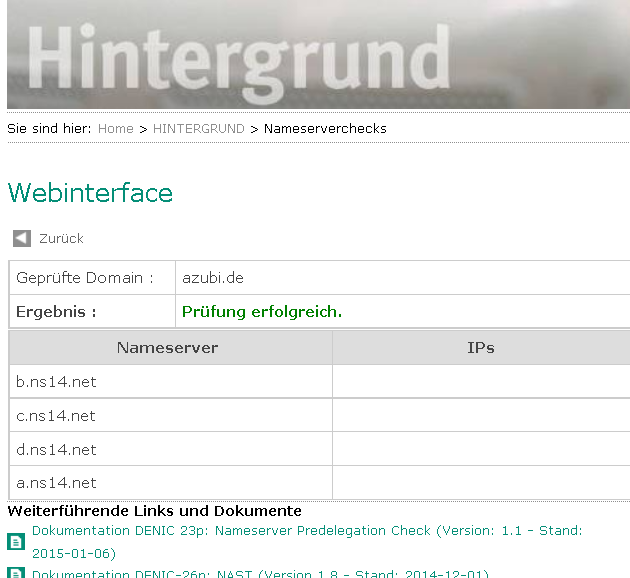

validating /DNSKEY: verify failed due to bad signature (keyid=2536): RRSIG has expired resolution failed: insecurity proof failed Let's check the invalid one: $ delv -t A. Validating authoritative server responses with an anchor-file Otherwise you'll get a unknown option 'trust-anchors'. NOTE: You do need bind9-dnsutils 9.16 or newer for this to work. Now we can ask an authoritative server and validate its response. "dnssec.works." static-key 257 3 8 "AwEAAa+YwrBlCwfJzwmsSK87hKFAm+yz03z5pZwZWpMRJu33+GQLswgZJJX/iOTcjwHdpQXvbAHwNhLtTJ1Pp46b55Q8+zH7DkvqQAJyDTfjVXEyX/745e/5CCPAkVGnaZihj9jqichokDfWkAOJvGxqg9HdqsLmXH3a2GrxFfvwsdSPuBwQmSVzURIyZMMxRC+GH2B+ADGWxJNvrspS0lf9svfkrdMvG4hjLhwNViDSjdx9yb4yRH/+TgvTAkYS/6iB8FLBKnltYtsXuveovKp9Dwq+xllqvUQTkRK90aUQEQa8G8ukecJbIliCrPJH7JK2IaDX8ezoYZ4QMZPc2y/K8FHK0G7EVDcgwskGj/NdfEHUuBdw+Vr9eHu8圆aoU/tnTRI7qI2HmCUqcVLSEGJAmKu4A7lqVP2Xw6cpROGviS6Z" If we run that snippet, we see this: $ make_trust_anchors dnssec.works. Those against our trusted root zone key.) (By using delv to look up the DNSKEY and DS, we even validate

" -vN =static-ds "$awk " # (delv requires one of the above) done So, in order for us to validate only the behaviour/responses of theĥ.45.109.212 nameserver, we have to "pre-load" the DS key. The DS record can be found at the nameserver of the parent zone: $ dig -t NS works. WARNING: recursion requested but not available The DNSKEY, but not the DS record(s): $ dig -t A dnssec.works. Can we work aroundĪs we saw above, delv validation starts by looking up the DNSKEY andĭS records for the hostname. Records returned by an authoritative nameserver. But that is annoying if we want to test the validity of Record, which is supposed to be in the parent zone.

The nameserver at 5.45.109.212 (that knows dnssec.works.) refuses toĪnswer requests for which it is not the authority: in this case the DS REFUSED unexpected RCODE resolving 'works/DS/IN': 5.45.109.212#53 REFUSED unexpected RCODE resolving 'works/NS/IN': 5.45.109.212#53 Manually, so as not to clutter the following output.) $ delv -t A dnssec.works. (We looked up the IP 5.45.109.212 of the authoritative nameserver If we try this on an authoritative nameserver - one that explicitlyĭoes not recurse - we'll get an error. (contrary to a DNS query which happens top-down): we get a record, lookįor the DNSKEY, look for the DS, get the next DNSKEY, etc., all the way Will ask for all relevant information to be able to verify the hostnameįrom the output above, we see that the validation happens bottom-up +rtraceĭelv does not ask other nameservers than the supplied server. +dnssec |įor a valid hostname, things look like this: $ delv -t A dnssec.works. In this case, the problem being that a DS record for the hostnameĮxists but the nameserver did not provide an RRSIG at all: $ dig -t DS. It rightly responded with a SERVFAIL because 3600 IN A 5.45.109.212Īs you can see, dig will not do DNSSEC validation. Performed by a recursing DNS server (like 1.1.1.1). When using dig with +trace, we can see how a lookup would be Without it, a system resolver might also tryĪ. Sidenote: we add the period (".") to the end of the hostname soĪdditional domain searches are not tried - see domain or search in If youĭon't know the difference between a recursive and authoritative DNSįor unsigned hostnames: $ delv -t A .Īnd for badly signed hostnames: $ delv -t A.
#Refused unexpected rcode resolving free
( 1.1.1.1 is the IP of Cloudflare's free recursive resolver.

Using delv is normally as simple as this: $ delv -t A dnssec.works.ĭnssec.works. If you want to validate only a part of a chain, Byĭefault it will validate up to the DNS root zone, for which it knows and The delv(1) tool is the standard way to validate DNSSEC signatures.


 0 kommentar(er)
0 kommentar(er)
